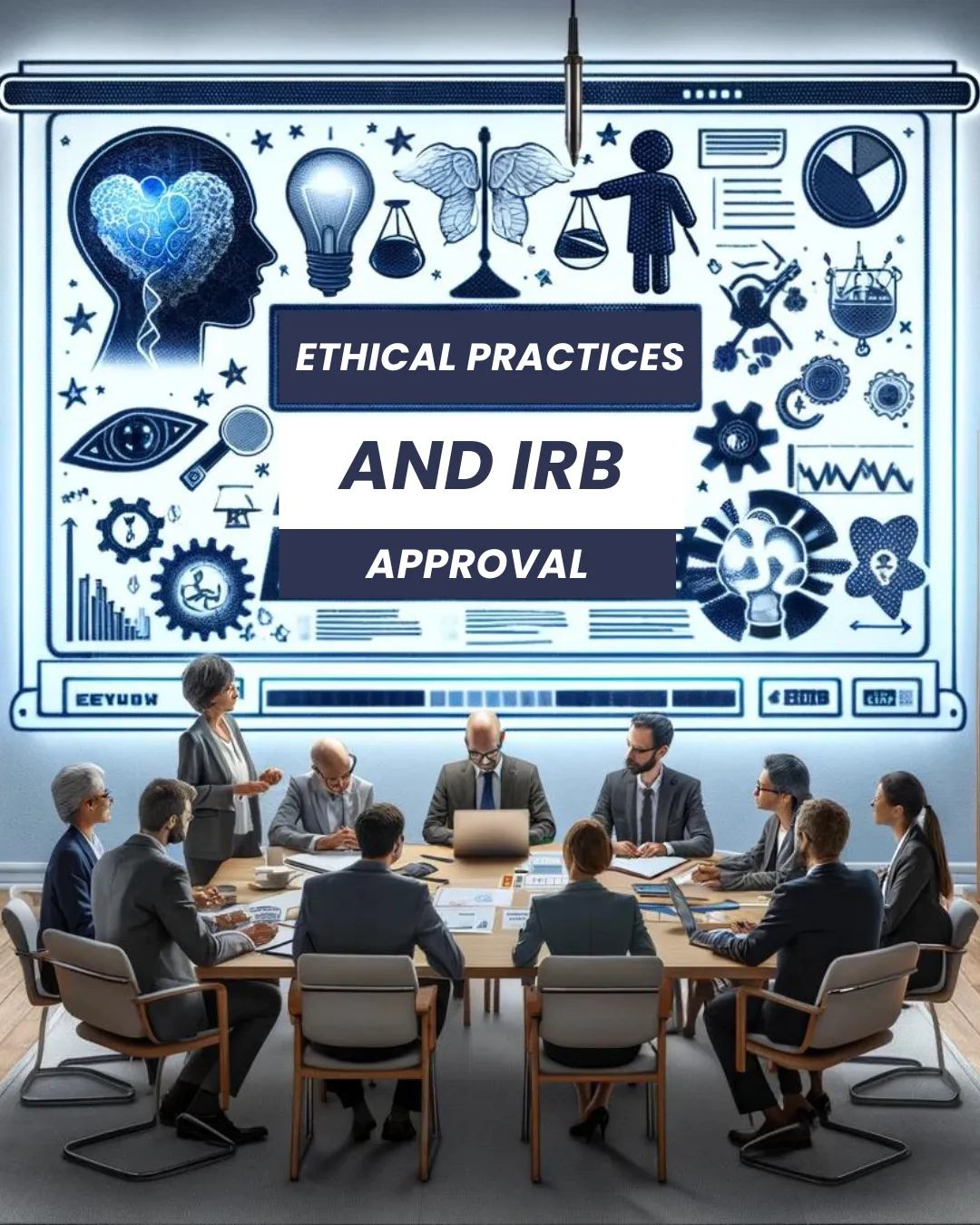BLOGS

Navigating the IRB Process Tips and Best Practices for Doctoral Candidates
Navigating the IRB Process Tips and Best Practices for Doctoral Candidates
Introduction
Beginning your doctoral journey is a monumental step in your academic career, filled with challenges, learning, and significant milestones. One of the pivotal steps in this journey involves obtaining approval from the Institutional Review Board (IRB). This process ensures that your research adheres to ethical standards, protecting the welfare of your participants. However, the IRB process can seem daunting, especially for new doctoral candidates. Fear not! This comprehensive guide is designed to demystify the IRB process, offering you invaluable tips, best practices, and a roadmap to streamline your journey towards ethical and approved research.

Why Navigating the IRB Process is Critical for Your Doctoral Success
Understanding the IRB Process
Embarking on a research project involving human subjects? The Institutional Review Board (IRB) process will likely be one of your first stops. It’s more than a formality; it’s a safeguard for ethical research. The IRB's primary role is to protect the rights and welfare of human research participants. This means ensuring that your study minimizes risks, provides potential benefits, and includes a fair selection of participants. Understandably, this can seem overwhelming at first glance, but with the right approach, you can navigate this process successfully. For an in-depth look at navigating the IRB approval process effectively, consider listening to the podcast "Navigating the IRB Approval Process Effectively," which offers additional insights and experiences from those who've been through it.
Common Challenges and How to Overcome Them
Doctoral candidates often encounter several obstacles during the IRB process, including lengthy paperwork, complex ethical considerations, and sometimes, the challenge of communicating their research in layman's terms. Here's how you can overcome these challenges:
Demystify the Process: Start by familiarizing yourself with your institution's IRB guidelines and attending any workshops or seminars they offer.
Seek Guidance: Don’t hesitate to consult with your advisor or colleagues who have successfully navigated the process.
Clear Communication: Ensure your application is clear, concise, and free of jargon, making it accessible to those outside your field.
Preparing Your IRB Submission: A Step-by-Step Guide
Crafting a Compelling Research Proposal
A well-structured research proposal is key to a smooth IRB review process. Begin with a clear and concise summary of your research question, objectives, and significance. Detail your methodology, including participant recruitment, data collection methods, and analysis plan. Most importantly, articulate how you plan to address ethical issues, such as informed consent and confidentiality. To further understand the critical role of ethical oversight in research, consider reading the blog "Exploring Ethical Oversight: The Integral Role of Research Ethics Committees & IRBs in PhD Research," which highlights the importance of these entities in ensuring the ethical conduct of research.
Ethical Considerations and Participant Protection
Ethical considerations are the backbone of the IRB process. Your application should detail:
Informed Consent: How you will inform participants about the study’s purpose, procedures, risks, benefits, and their rights.
Confidentiality: Measures you'll take to protect participants' data.
Minimization of Risk: Ensure the risks to participants are as low as possible, and justify any potential risks with corresponding benefits.
Responding to IRB Feedback and Revisions
It's common to receive feedback or requests for revisions from the IRB. View this as an opportunity to refine your study. Address each comment thoroughly, providing clarifications and making adjustments as needed. If certain feedback seems unclear, don’t hesitate to ask for further explanation. Timely and thoughtful responses can significantly expedite the approval process.
Enhancing Your Research with Ethical Practices
Incorporating Ethical Practices Beyond IRB Approval
Securing IRB approval is just the beginning. Maintaining ethical integrity throughout your research is crucial. Regularly review your ethical obligations, and be prepared to adapt as your research progresses. Engage in ongoing consent with participants, especially if new information arises that may affect their decision to participate.
Case Studies: Successful IRB Navigation
Consider the story of a doctoral candidate in psychology who planned to study the effects of social media on self-esteem. By working closely with their advisor, attending IRB workshops, and meticulously preparing their application, they received approval on their first submission. Their key to success? A clear, well-documented proposal that addressed ethical considerations head-on, and a proactive approach to addressing potential concerns highlighted by the IRB.
Additionally, here's a related YouTube video on IRB Process Tips and Best Practices. It could provide you a multi-faceted understanding of the topic.
Conclusion: Your Path to IRB Success
Navigating the IRB process is an integral part of your doctoral research journey, laying the groundwork for ethical and responsible research. By understanding the process, meticulously preparing your submission, and embracing ethical practices throughout your study, you're setting yourself up for success. Remember, the goal of the IRB process is not to hinder your research but to enhance its integrity and impact.
Don't let the IRB process stand in the way of your research goals. With the right preparation and support, you can navigate it successfully and focus on what truly matters—contributing valuable insights to your field.
Our team of experts is ready to support your journey, offering guidance, resources, and expertise to help you navigate the complexities of doctoral research, including the IRB process. Click here to get started!
